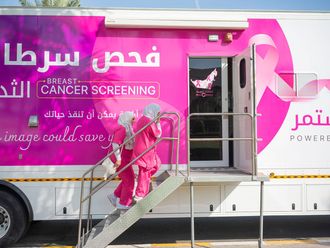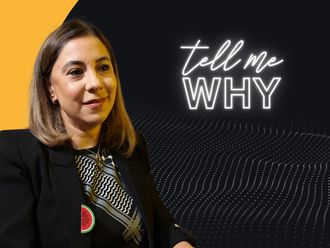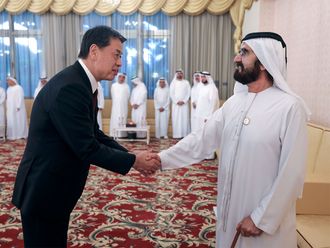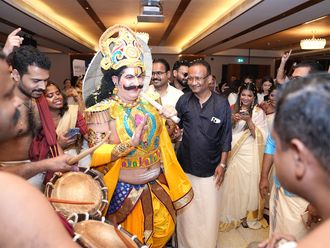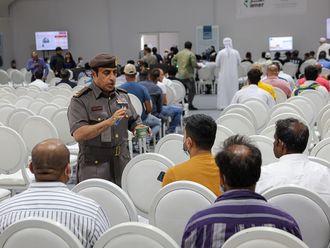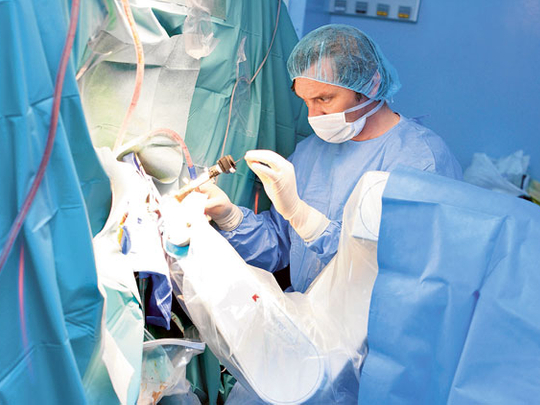
Dubai: Medical technology is advancing fast and in the near future surgeons will be able to operate on a patient in Dubai from the US or India, says a top surgeon.
"The highly skilled part of the procedure, such as attaching the blood vessels, can be done by the surgeon sitting somewhere abroad," said Dr Hafeez Rahman, chairman of the International Modern Hospital.
Tele-surgeries will be the norm of tomorrow, said the doctor who plans to bring robotic surgery to Dubai within the next six months.
The surgical team will prepare the patient for the operation here and the highly skilled part will be done by the expert through the robotic arms (while watching on the screen in front of him), he said.
The surgeon explained that robotic surgery does not mean the robots do the surgery. "The robotic arms are controlled by a surgeon," he said. "With the robotic arms, an average surgeon will become even more highly skilled," he said.
Advantage
"Surgeons generally have a slight tremor of 1mm," he noted. "When you are doing a minimally invasive procedure, the tremor is magnified 20 times to a movement of 2 cm." Robotic arms help filter out the shake, he said.
Dr Rahman who is listed in the Guinness World Records for conducting 50,000 laparoscopic or minimally invasive surgeries around the world, said this type of surgery is the surgery of the future.
"Minimally invasive surgeries put the patients back on their feet quicker than conventional surgeries. There is less danger of infection," he said.
These surgeries are also known as key-hole surgeries as there is only a a small hole cut in the side and through which a telescopic arm is inserted which performs the procedure. The surgeon controls the telescopic arm while watching its progress on a screen in front.
The surgeon said many surgeries in Dubai are done as open surgeries because there are not many skilled surgeons who can do key-hole surgery.
"Opening up an abdomen is now considered criminal," he said. "Almost 99 per cent of the illnesses can be tackled through minimally invasive surgery," he said, "except for orthopaedic surgery or trauma".
The surgeon said minimally invasive surgery is not really expensive when you take into account the number of days a patient has to stay in hospital if he undergoes an open surgery. "A day in hospital in Dubai is very expensive and costs Dh 2,000. And if you have to go into the ICU, maybe you will be in for 5 to 6 days. It's a financial drain for the country and the insurance companies,' he said, as the patient has to take off for a couple of days.
Tele-medicine
The surgeon said with video-conferencing, a doctor can offer consultation to a patient in Dubai, from Africa or the US.
"Medicine has evolved and today medical professionals rely much less on the clinic part of medicine. Now it is mostly investigative. An MRI [magnetic resonance imaging] makes it crystal clear."
The doctor said for instance a cardiologist will provide the details to the expert abroad with the patient on the side. Speaking on the host of information available on the internet, the doctor warned that it is superficial. "The internet needs to be scrutinised. It would be dangerous if a person tries to cure himself with the half-information," he said.
The chairman said many African patients prefer to go to India for surgeries because they believe in the ability of the doctors there. "We have top professionals here [in Dubai] but we need to change that mind-set [of the patients]," he said. "
We can bring those patients to Dubai, he said.
He said the notion that it is cheaper in India is wrong. "A surgery done in Dubai saves you a time and money. You do not spend 15 days away from work. Some of the surgeries done in the expats' home countries can be done here at the same as their home countries," he said. "We are talking about emergency cases where there is no insurance."


